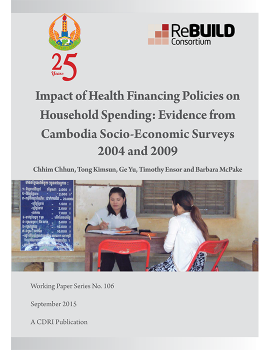
Impact of Health Financing Policies on Household Spending: Evidence from Cambodia Socio-Economic Surveys 2004 and 2009
We use the 2004 and 2009 Cambodia Socio-Economic Surveys to measure the impact of user fees, health equity funds, the government health subsidy scheme, vouchers and various combinations of these policies on household health spending. Employing a difference-indifferences estimator and a two-part model, we find that health equity funds and vouchers h...
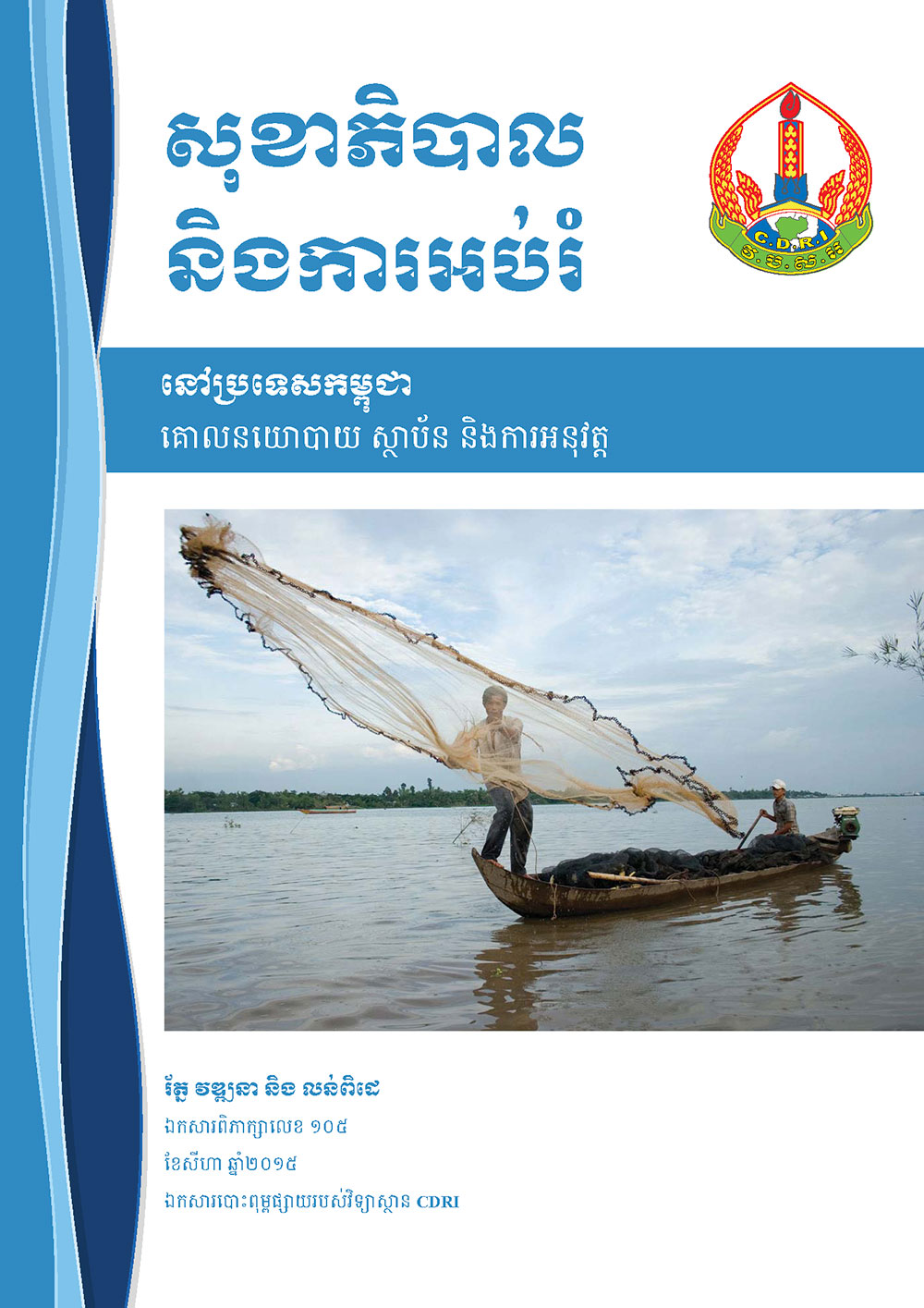
Health and Education in Cambodia: Policies, Institutions and Practices
Motivated by the relatively low indicators for access to basic secondary education and healthcare, the study attempts to (1) analyse national policy and institutional framework for inclusive development in health and education, and (2) identify areas needing attention or updating. In education, Cambodia has made considerable progress towards achiev...
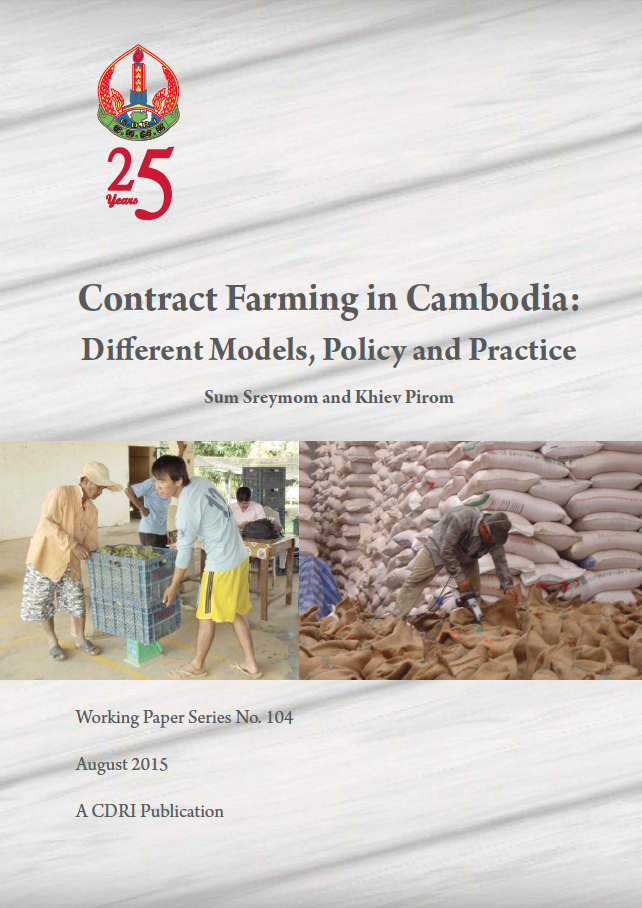
Contract Farming in Cambodia: Different Models, Policy and Practice
Contract farming (CF) is increasingly seen as an effective mechanism to maximise the inclusion of and benefits for small-scale farmers, while giving some control over production to agribusinesses without requiring land ownership. In Cambodia, CF takes many forms and involves food and industrial crops, yet the different CF models and...
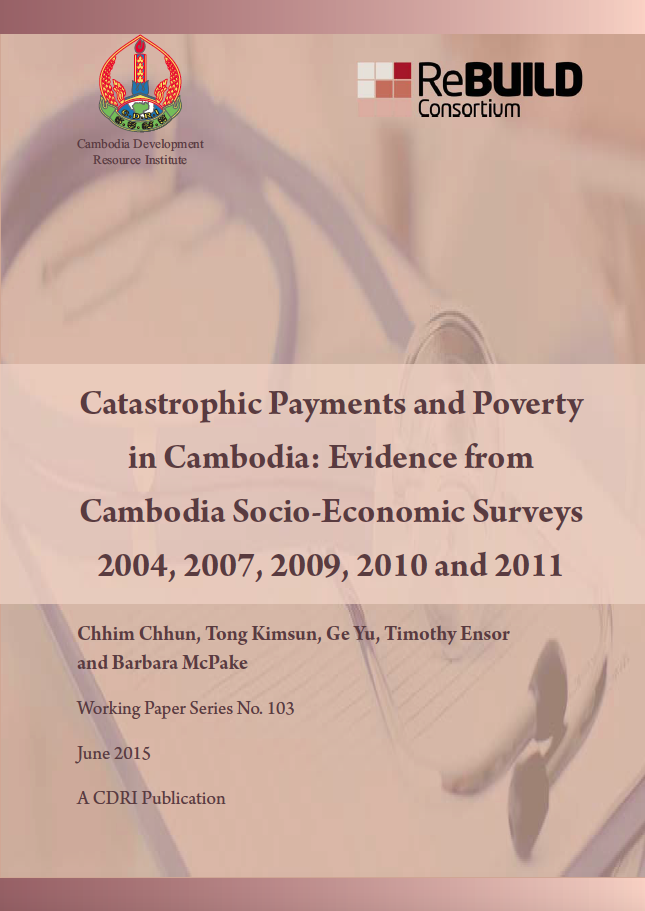
Catastrophic Payments and Poverty in Cambodia: Evidence from Cambodia Socio-Economic Surveys 2004, 2007, 2009, 2010 and 2011
This paper estimates the incidence and intensity of catastrophic health payments and their impoverishment effects and identifies the sources of catastrophic payments by using the nationally representative household survey, the Cambodia Socio-Economic Survey conducted in 2004, 2007, 2009, 2010 and 2011 by the National Institute of Statistics. We fin...
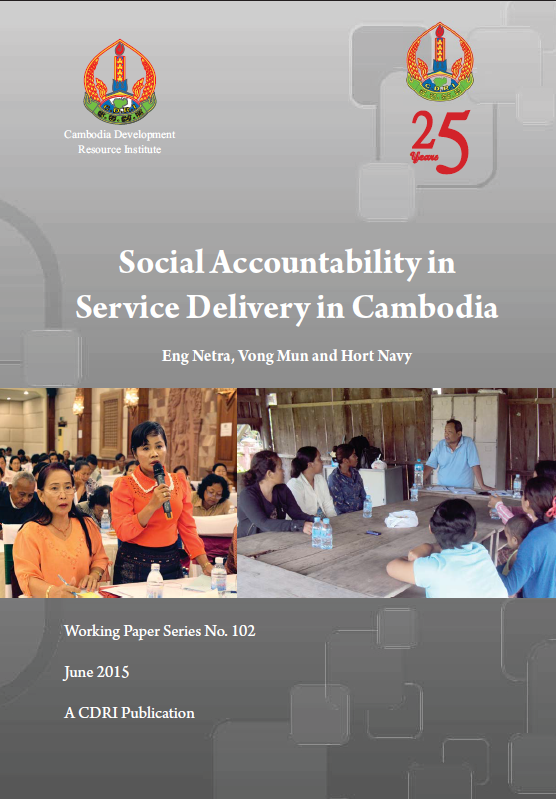
Social Accountability in Service Delivery in Cambodia
Social accountability is becoming integral to the government of Cambodia’s reform agenda as a new approach to promote and empower citizens’ collective voice to demand accountability from state officials for improved public services. International donors and non-government organisations have initiated and implemented various tools of social accounta...
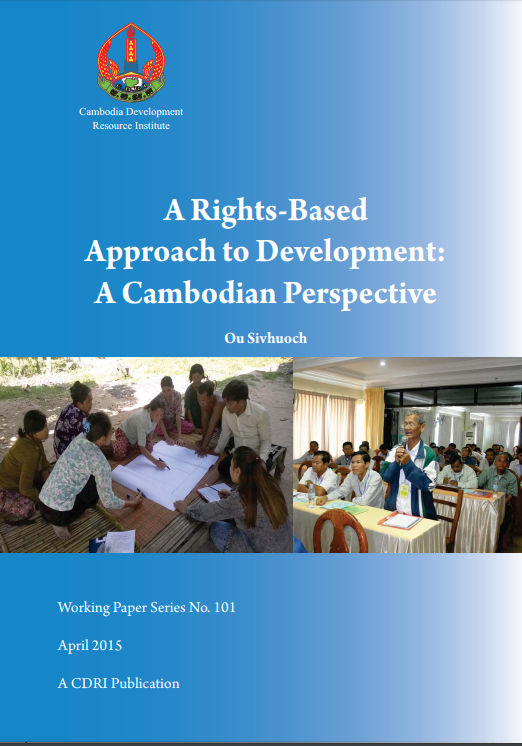
A Rights-Based Approach to Development: A Cambodian Perspective
The rights-based approach (RBA) to development emerged as a new and relatively authoritative paradigm, starting from the late 1990s. At its core is the argument that human rights and development converge and, unless the socio-economic rights of the poor are attained, poverty cannot be alleviated. Its approach is to shift NGOs’ strategy from providi...
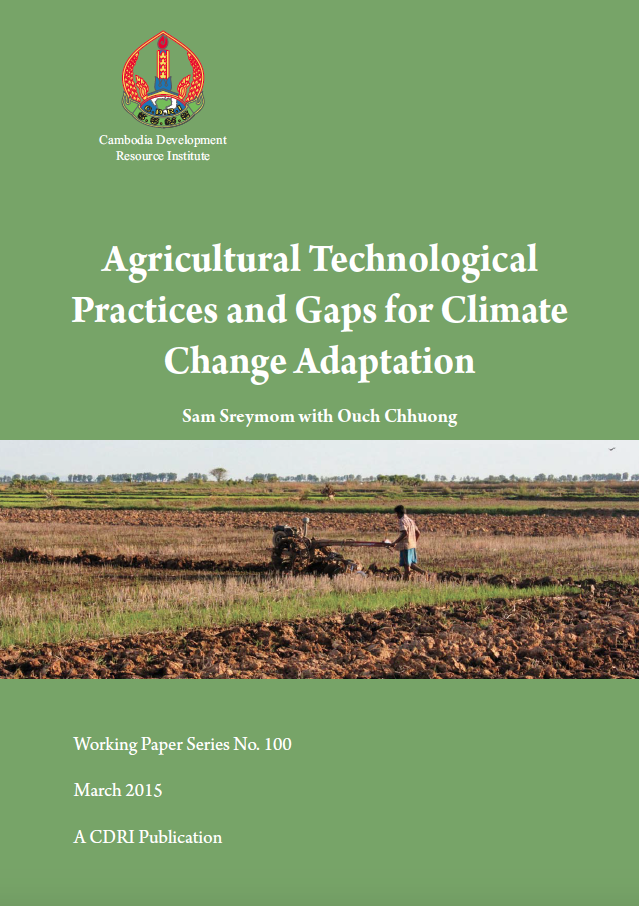
Agricultural Technological Practices and Gaps for Climate Change Adaptation
Agriculture plays an important role in sustaining rural livelihoods. Eighty-three percent of rural people are engaged in agriculture (NIS and MAFF 2014). An emerging problem facing agriculture is climate change. The anticipated impacts of climate change and variability on agriculture include changes in rainfall patterns, higher tempe...
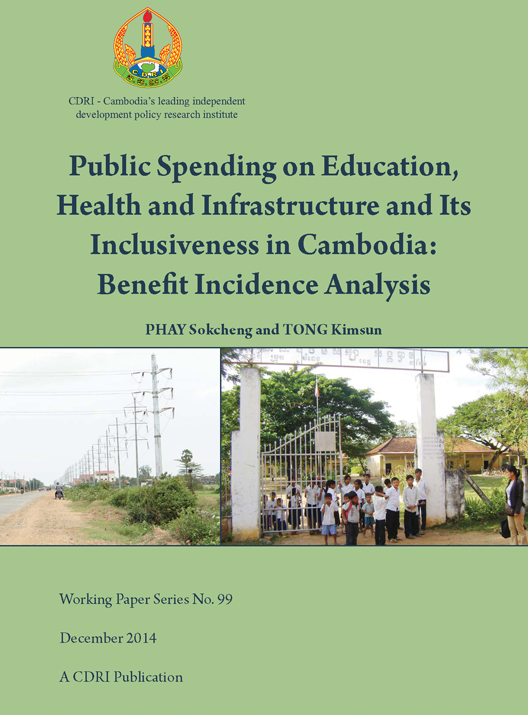
Public Spending on Education, Health and Infrastructure and Its Inclusiveness in Cambodia: Benefit Incidence Analysis
This paper examines public spending on education, health and infrastructure in Cambodia. Using benefit incidence analysis (BIA), marginal benefit incidence analysis (MBIA) and the nationally representative household survey data from the Cambodia Socio-Economic Survey (CSES) in 2004, 2009 and 2011, the paper examines whether governmen...
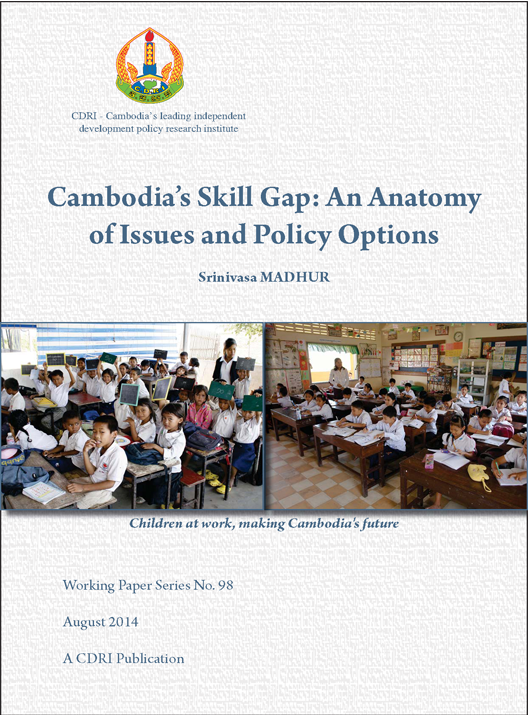
Cambodia’s Skill Gap: An Anatomy of Issues and Policy Options
Cambodia faces a growing skill gap that threatens its economic development and youth employment prospects. This gap stems from two interrelated educational deficiencies: a schooling gap—low enrollment and completion rates beyond primary education—and a learning gap—poor quality of education and inadequate acquisition of job-relevant skills. Despite...
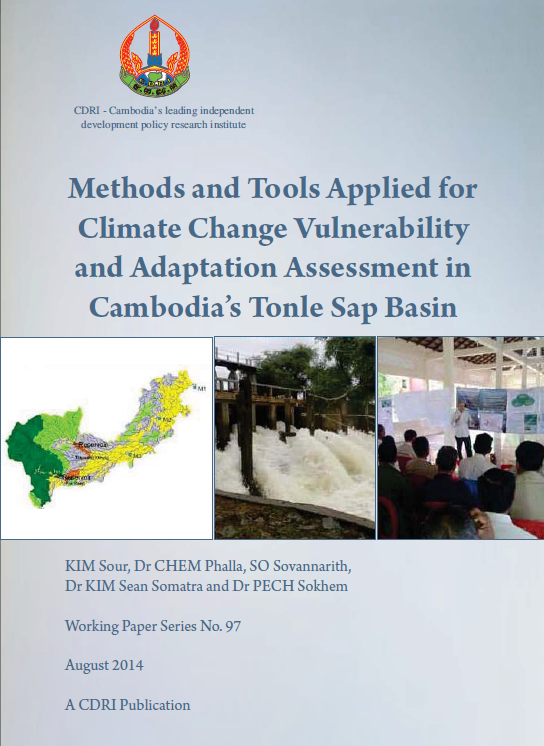
Methods and Tools Applied for Climate Change Vulnerability and Adaptation Assessment in Cambodia’s Tonle Sap Basin
This study reviews and evaluates methods and tools used to assess climate change vulnerability and adaptation (V&A) in Cambodia’s Tonle Sap Basin, focusing on water governance and community resilience. Given the region’s susceptibility to floods, droughts, and climate variability, the research emphasises the need for site-specific assessments to in...
